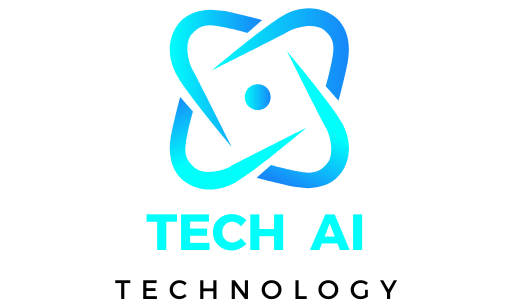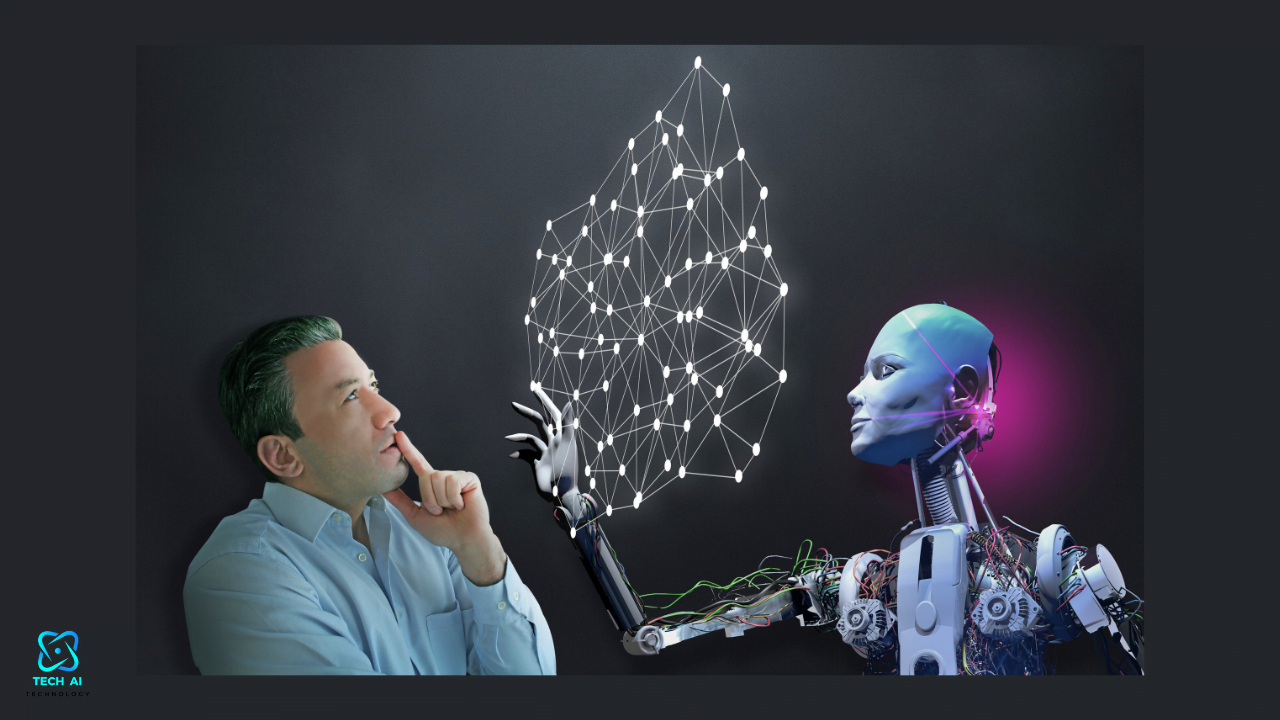The Future of Work with AI is changing how developers code, build software, and solve problems. AI tools automate tasks, speed up development, and improve efficiency. But will AI replace jobs or create new opportunities? Beginners and experienced developers must adapt to AI driven changes to stay relevant.
In this guide, we’ll explore AI’s impact on jobs, the rise of AI coding assistants, and the top skills needed for success. Whether you’re starting your coding journey or upgrading your skills, understanding AI’s role in the workplace is key to staying ahead.
Future of Work with AI: How AI is Changing Careers
How AI is Changing the Job Market
The future of work with AI is reshaping careers, automating tasks, and creating new opportunities. AI powered tools improve efficiency, reduce costs, and enhance productivity. Some jobs will change, but new roles will emerge. Developers and tech professionals must learn AI driven skills to stay ahead. Businesses are adopting AI to streamline operations and boost innovation.
Will AI Replace Jobs or Assist Workers?
AI automation is transforming industries. It handles repetitive tasks, speeds up workflows, and reduces errors. Many worry about AI replacing jobs, but it’s more of a tool than a threat. AI helps professionals work smarter, not harder. In software development, tools like GitHub Copilot and AI code generators assist coders. Instead of taking jobs, AI is shifting demand toward creative problem solving and AI integration.
High Demand AI Skills for the Future
AI is creating new career paths. Companies need experts in machine learning, AI driven development, and cloud computing. AI skills like data analysis, natural language processing, and cybersecurity are in high demand. Developers should focus on AI powered frameworks and automation tools. Python, TensorFlow, and OpenAI models are key technologies shaping the future.
How Developers Can Adapt to AI
Staying competitive means learning AI driven tools. AI powered debugging software, automated testing, and smart UI/UX tools are changing development. Developers should build projects with AI, take online courses, and stay updated. Soft skills like critical thinking, creativity, and adaptability are just as important. The best way to future proof your career is to embrace AI, not fear it.
The Future of AI in the Workplace
AI is not replacing humans it’s enhancing the way we work. Businesses need tech professionals who can integrate AI into their workflows. AI driven workplaces will prioritize innovation, efficiency, and collaboration. Developers who understand AI tools and automation will thrive. Learning AI is no longer optional—it’s the key to career growth in the digital age.
The future of work with AI is full of possibilities. Those who learn, adapt, and embrace AI will lead the next generation of tech innovation.
AI’s Impact on the Job Market: Automation, Job Loss, and Emerging Opportunities
AI Automating Repetitive and Manual Tasks
AI is transforming industries by automating repetitive and labor intensive tasks. Businesses use artificial intelligence to handle data processing, quality control, and customer service automation. AI driven software improves efficiency in industries like healthcare, finance, and logistics.
Machine learning algorithms optimize workflows, reducing human errors. AI powered robots streamline manufacturing, reducing costs and increasing production speed.
AI Replacing Jobs in Various Sectors
Automation is replacing traditional jobs, particularly in data entry, manufacturing, and customer support. AI chatbots handle customer queries, reducing the need for human agents. Factories implement robotic automation, minimizing reliance on manual labor.
AI software automates bookkeeping, reducing the demand for accounting clerks. Retail businesses use self checkout kiosks, eliminating cashier roles. AI powered legal tools perform document analysis, affecting paralegal job demand.
AI Creating New Job Opportunities
While AI replaces some roles, it also creates new job opportunities in emerging fields. AI engineers develop machine learning models to enhance automation. Data scientists analyze massive datasets, driving business insights. AI ethics consultants ensure responsible AI development and implementation. Cybersecurity specialists combat AI driven threats in digital systems. AI trainers refine machine learning algorithms to improve accuracy and fairness.
The Shift in Demand for AI Related Skills
The job market is evolving, with a growing demand for AI related skills. Businesses seek professionals skilled in Python, machine learning, and natural language processing.
Companies prioritize employees with AI integration expertise across industries. Upskilling programs focus on AI programming, deep learning, and neural networks. Professionals must adapt by learning AI tools to remain competitive in the job market.
The Rise of AI Powered Workplaces: How AI is Transforming Industries
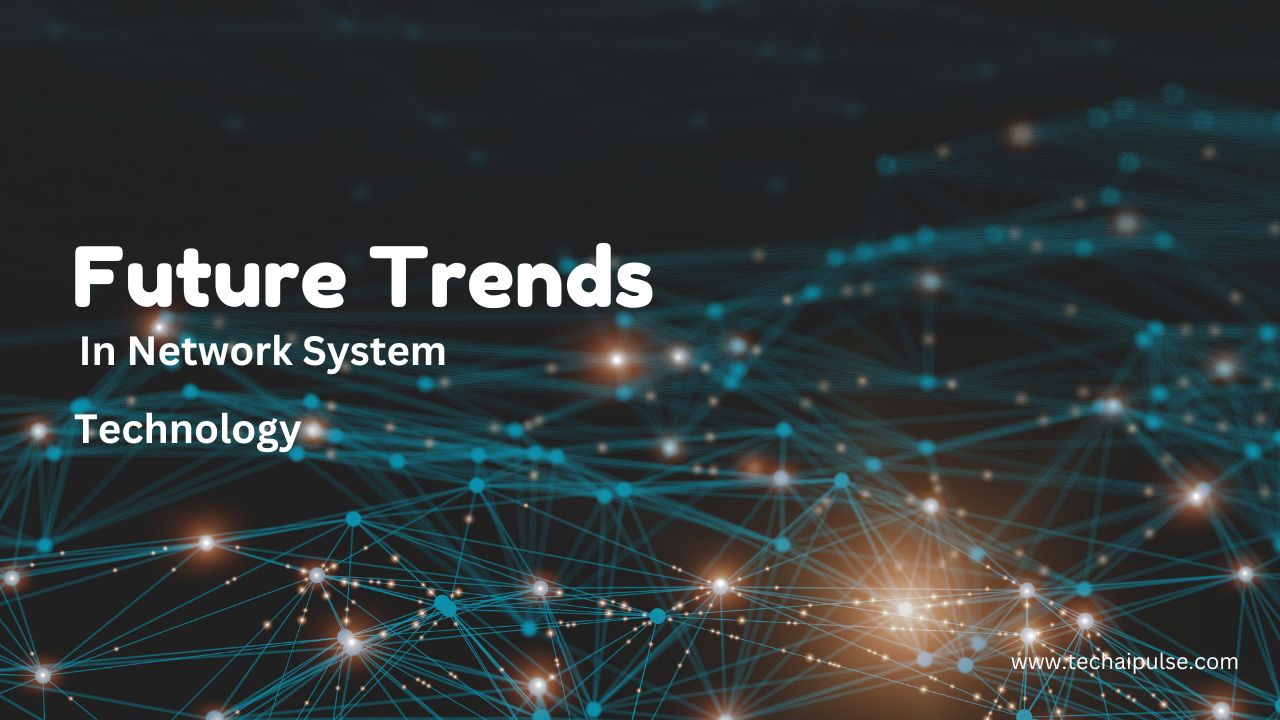
Artificial Intelligence is reshaping workplaces across various industries. From healthcare and finance to retail and software development, AI powered tools enhance efficiency, automate tasks, and improve decision making. Businesses are rapidly integrating AI to streamline operations and boost productivity. Here’s how AI is transforming different sectors.
AI in Healthcare: Revolutionizing Diagnosis and Treatment
AI is transforming healthcare by enhancing diagnostic accuracy and treatment plans. AI assisted diagnosis helps doctors detect diseases early, improving patient outcomes. Robotic surgeries powered by AI ensure precision and reduce recovery time.
Machine learning algorithms analyze vast medical data to provide real time insights. AI driven chatbots assist patients by answering queries and scheduling appointments. The healthcare industry benefits from AI powered automation, improving efficiency and reducing human errors.
AI in Finance: Enhancing Risk Assessment and Fraud Detection
Financial institutions rely on AI for risk management and fraud prevention. AI driven risk assessment analyzes market trends and customer behavior, predicting potential risks. Machine learning models detect fraudulent transactions in real time, minimizing financial losses.
AI powered chatbots assist customers with account inquiries and transaction alerts. Automated financial planning tools use AI to suggest investment strategies based on data insights. AI is reshaping the finance industry, ensuring security and efficiency.
AI in Retail: Driving Customer Engagement and Sales
Retail businesses leverage AI to enhance customer experiences. AI powered chatbots handle customer service inquiries, reducing wait times. AI driven product recommendations personalize shopping experiences, increasing sales conversions.
Automated inventory management optimizes stock levels, preventing shortages. AI based pricing strategies adjust prices dynamically, improving profitability. Retailers use AI for demand forecasting, enhancing supply chain management. AI integration in e-commerce and physical stores enhances customer satisfaction and operational efficiency.
AI in Software Development: Boosting Productivity and Automation
AI is revolutionizing software development with automation tools. AI powered coding assistants help developers write efficient code, reducing errors. Machine learning algorithms optimize debugging and software testing, speeding up development cycles.
AI driven automation tools streamline repetitive coding tasks, increasing productivity. Predictive analytics in software development helps identify potential system failures before they occur. AI enhances software security by detecting vulnerabilities in real time.
AI’s Role in Workplace Efficiency and Decision Making
AI improves workplace efficiency by automating routine tasks and enhancing decision making. AI powered analytics provide real time insights, helping businesses make data driven decisions. Intelligent automation reduces manual workload, allowing employees to focus on complex tasks.
AI driven collaboration tools enhance team productivity by streamlining workflows. Machine learning algorithms analyze business data, optimizing operational strategies. AI powered virtual assistants help with scheduling, reminders, and administrative tasks.
AI and Job Creation: New Career Paths
Artificial Intelligence (AI) is reshaping the job market, creating new career opportunities in various industries. As automation and AI powered systems evolve, professionals are adapting to emerging roles. The demand for AI specialists is skyrocketing, driving innovation in multiple fields.
High Demand Careers in AI
1. AI Engineers and Machine Learning Specialists
AI engineers design and develop intelligent algorithms that power automation. Machine learning specialists train AI models to improve accuracy and efficiency. Companies seek AI developers skilled in Python, TensorFlow, and neural networks.
These professionals enhance AI applications in healthcare, finance, and e-commerce. AI engineers are at the core of smart technology development, revolutionizing industries worldwide.
2. Data Analysts and AI Driven Cybersecurity Experts
Data analysts extract insights from large datasets, helping businesses make data driven decisions. AI driven cybersecurity experts protect networks from cyber threats using machine learning models. With rising cybercrime, organizations need AI powered security solutions.
Roles in predictive analytics, fraud detection, and network security are growing rapidly. AI enhances threat detection, improving online safety and business continuity.
3. AI Powered UX Designers and Automation Developers
AI powered UX designers create intuitive interfaces for AI applications. They use behavioral data to improve user experience in websites, mobile apps, and AI chatbots. Automation developers design intelligent workflows that boost operational efficiency.
Companies use AI automation to streamline repetitive tasks, reducing human workload. This sector is expanding as AI driven user engagement becomes a priority.
4. Emerging Roles in AI Ethics, Regulation, and Human AI Collaboration
AI ethics specialists ensure responsible AI deployment by addressing bias and fairness. Regulations for AI compliance are increasing, creating demand for legal experts in AI governance. Human AI collaboration specialists focus on enhancing teamwork between AI systems and employees.
As AI technology advances, businesses need professionals to guide ethical AI practices. This field is crucial for maintaining transparency and trust in AI applications.
5. AI’s Role in Supporting Remote and Hybrid Work Environments
AI is transforming remote work with intelligent tools that enhance productivity. AI powered virtual assistants, automated scheduling systems, and smart collaboration platforms optimize workflows. Companies rely on AI for performance tracking, communication enhancement, and workflow automation.
Hybrid work models benefit from AI driven insights, making operations more efficient. AI continues to revolutionize digital workplaces, shaping the future of remote employment.
Key AI Skills for Future Jobs: Essential Technical and Soft Skills
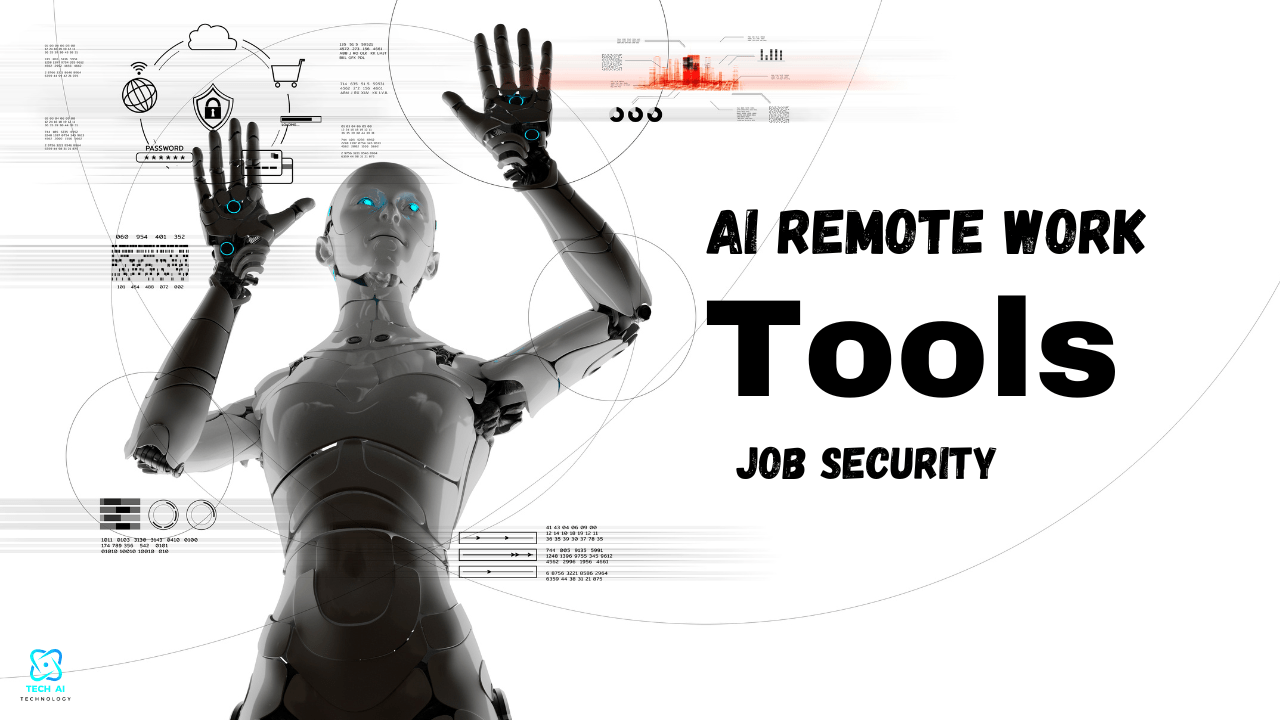
Artificial intelligence (AI) is transforming industries and reshaping job roles. To stay competitive, professionals must develop key AI skills that drive automation, decision making, and efficiency. This guide covers essential technical skills and soft skills needed for AI driven workplaces.
1. Machine Learning, Deep Learning, and Neural Networks
Machine learning (ML) is the backbone of AI. It enables computers to learn from data and improve over time. Deep learning takes this further by using artificial neural networks to process complex information. These skills are critical for tasks like image recognition, speech processing, and predictive analytics. Companies need professionals who can develop and fine tune machine learning models to enhance automation.
2. AI Frameworks: TensorFlow and PyTorch
AI frameworks simplify model building and deployment. TensorFlow and PyTorch are widely used for deep learning applications. They help developers create AI powered solutions such as chatbots, virtual assistants, and recommendation systems. Mastering these tools ensures faster implementation of AI driven technologies in businesses.
3. Natural Language Processing (NLP) and Automation Tools
NLP enables machines to understand and interpret human language. It powers applications like voice assistants, sentiment analysis, and text summarization. Learning NLP models and automation tools is essential for building AI systems that interact with humans. Tools like spaCy, NLTK, and OpenAI’s GPT models help businesses improve customer engagement.
4. Critical Thinking and Problem Solving in AI Workplaces
AI automates tasks but still requires human oversight. Critical thinking helps professionals analyze data, interpret AI predictions, and make informed decisions. Problem solving skills ensure that AI models are optimized for accuracy, fairness, and efficiency. These skills are crucial in industries adopting AI driven automation.
5. Adaptability to Evolving AI Technologies
AI is evolving rapidly. Professionals must stay updated on the latest trends, tools, and best practices. Upskilling in AI through online courses, certifications, and practical projects is necessary. Adapting to new AI driven technologies ensures long term career growth.
6. Ethical AI Usage and Decision Making
AI impacts society, requiring ethical considerations. Professionals must focus on bias reduction, transparency, and responsible AI development. Ethical AI ensures fairness in hiring, loan approvals, and medical diagnoses. Understanding AI regulations and ethical frameworks is crucial for building trustworthy AI systems.
How Developers Can Adapt to AI in the Workplace
The Rise of AI Assisted Development
Artificial intelligence is transforming software development. Tools like GitHub Copilot, ChatGPT, and AI powered code generators help developers write and debug code faster. These tools automate repetitive tasks, suggest optimized code, and enhance productivity. AI driven development allows programmers to focus on problem solving, architecture design, and innovation rather than just writing code.
Learning AI Powered Coding Frameworks and Automation Tools
Developers must embrace AI powered frameworks to stay competitive. Technologies like TensorFlow, PyTorch, OpenAI APIs, and AutoML simplify complex tasks. Automation tools streamline code reviews, testing, and deployment, making development faster. Understanding AI driven DevOps, cloud automation, and machine learning workflows is crucial for modern software engineers.
Upskilling Through AI Courses, Certifications, and Hands On Projects
Staying ahead in AI development requires continuous learning. Online platforms like Coursera, Udacity, and edX offer AI related courses. Certifications in machine learning, deep learning, and AI ethics boost career opportunities. Hands on projects using AI tools help developers gain real world experience. Open source contributions and participating in AI hackathons accelerate learning.
The Importance of Continuous Learning to Stay Ahead
AI in software development is evolving rapidly. Developers must adapt to AI driven changes, experiment with new tools, and refine their coding skills. Following AI research papers, tech blogs, and developer communities helps in staying updated. Collaboration with AI systems will define the future of coding. Adapting to AI powered development ensures long term success in the industry.
AI’s Role in Remote and Hybrid Work: How AI is Transforming Virtual Collaboration
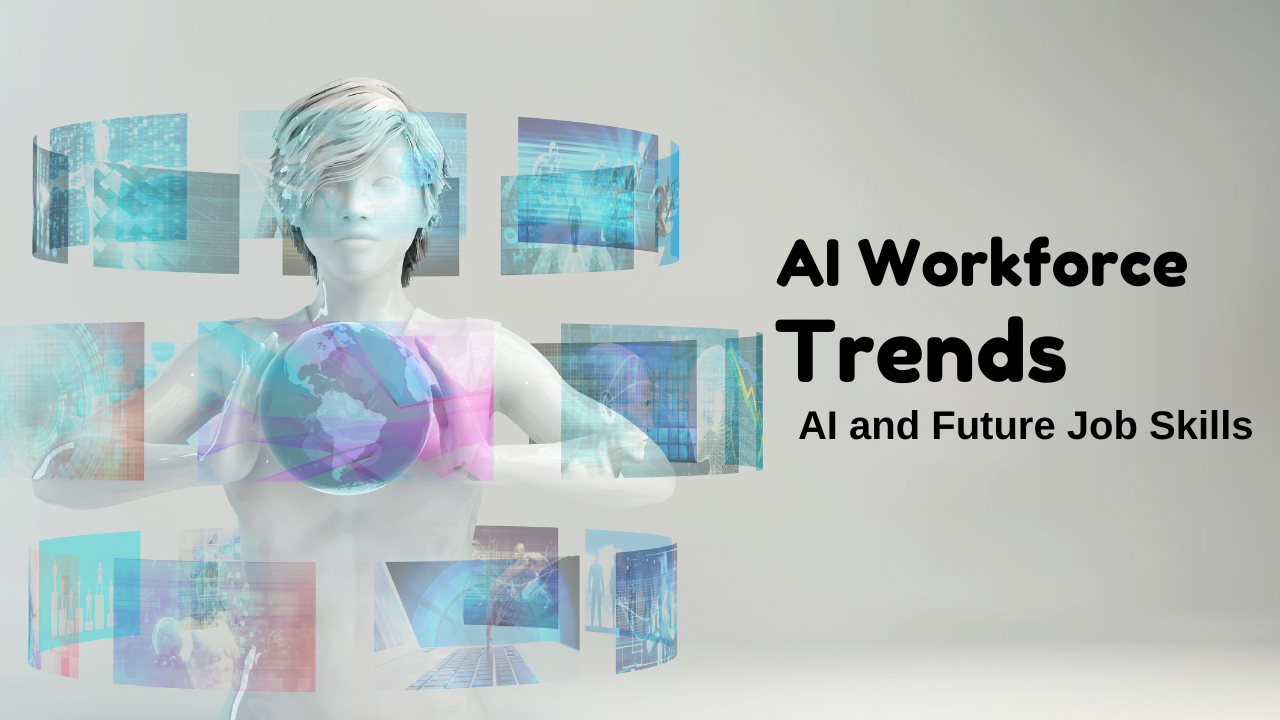
AI is revolutionizing remote and hybrid work environments. It enhances productivity through virtual assistants, workflow automation, and smart collaboration tools.
AI powered video conferencing improves communication with real time transcription and meeting insights. Businesses use AI to streamline task management and optimize workflows. As AI advances, remote teams can collaborate more efficiently with intelligent automation and predictive analytics.
1. AI Powered Virtual Assistants in Remote Work
AI powered virtual assistants like ChatGPT, Google Assistant, and Microsoft Copilot enhance productivity. They schedule meetings, send reminders, and automate repetitive tasks. AI driven chatbots provide instant customer support and improve team communication. Virtual assistants also integrate with project management tools, making remote work seamless.
2. Workflow Automation with AI
AI automates complex workflows, reducing manual effort and increasing efficiency. AI driven task automation helps teams manage deadlines, assign tasks, and track progress in real time. Platforms like Zapier, Trello, and Asana use AI to streamline operations. Automated reports and data analysis improve decision making for hybrid teams.
3. AI in Video Conferencing and Meeting Transcription
AI enhances video conferencing with real time noise cancellation, facial recognition, and smart transcription. Tools like Zoom AI Companion and Otter.ai generate accurate meeting summaries. AI detects speech patterns, highlights key points, and translates conversations into multiple languages. This improves accessibility and collaboration across global teams.
4. AI Driven Task Management and Productivity Boosters
AI powered task management tools prioritize tasks based on deadlines and workload. Smart scheduling apps like Motion and ClickUp optimize time management. AI helps employees focus by reducing distractions and automating reminders. Machine learning algorithms analyze work patterns to enhance efficiency.
5. AI Enhanced Collaboration Tools for Remote Teams
AI improves collaboration by integrating with project management software. Platforms like Slack, Microsoft Teams, and Notion AI use AI to summarize messages, generate responses, and automate workflows. AI powered file organization makes document retrieval faster, improving team efficiency.
6. Predictive AI for Employee Productivity and Engagement
AI analyzes employee performance and engagement levels. It detects burnout risks and suggests productivity improvements. AI driven analytics tools like ActivTrak and Workday AI help managers track work habits and optimize schedules. AI also personalizes learning recommendations to upskill remote employees.
7. The Future of AI in Remote and Hybrid Work
AI will continue transforming remote work with advanced automation, real time collaboration, and intelligent analytics. Future AI innovations will enhance virtual meetings with holographic avatars and AI driven decision making. Businesses adopting AI powered tools will gain a competitive edge in remote work environments.
Ethical and Social Implications of AI in the Workplace
Artificial intelligence (AI) is transforming workplaces, raising ethical and social concerns. Job displacement, AI bias, and privacy risks are major issues. Ethical AI governance and responsible policies are crucial for fair AI adoption. Businesses must address transparency, fairness, and accountability. Governments and organizations are implementing regulations to ensure ethical AI use.
1. Job Displacement and Unemployment
AI automation is replacing human jobs in many industries. Automated systems handle repetitive tasks, reducing the need for human labor. This shift raises fears about unemployment and economic inequality. Workers must upskill to stay relevant in an AI driven job market. Governments and businesses must invest in retraining programs to support affected employees.
2. AI Bias and Ethical Governance
AI systems can be biased due to flawed data. Biased AI leads to unfair hiring, discrimination, and ethical violations. Companies must ensure transparency in AI decision making. Ethical AI governance includes monitoring algorithms for fairness and accountability. Diversity in AI development teams helps create unbiased and ethical AI models.
3. Privacy Concerns in AI Driven Workplaces
AI collects vast amounts of employee data. Workplace surveillance, facial recognition, and automated monitoring raise privacy concerns. Employees worry about data misuse and workplace monitoring policies. Companies must implement strict data protection measures. Transparent AI policies ensure employee trust and legal compliance.
4. Regulations and Responsible AI Usage
Governments are introducing AI regulations to ensure ethical use. AI laws focus on transparency, accountability, and fairness. Responsible AI policies prevent misuse and protect employee rights. Companies must follow ethical guidelines when deploying AI solutions. AI governance frameworks promote responsible innovation and ethical AI adoption.
Future Proofing Careers in an AI Driven World

The rapid advancement of artificial intelligence is transforming industries. Many jobs are evolving, requiring new skills to stay relevant. Future proofing careers in an AI powered job market is crucial. Workers must adapt by developing AI literacy and focusing on continuous learning. Businesses should integrate AI with human expertise to remain competitive.
Strategies to Remain Competitive in an AI Powered Job Market
Automation is changing how jobs function. To stay competitive, professionals must upskill in AI related fields. Learning programming languages like Python and understanding machine learning fundamentals can help. Soft skills such as creativity, problem solving, and emotional intelligence remain valuable. Networking with industry experts and engaging in AI driven projects can also enhance career growth.
The Importance of AI Literacy and Continuous Learning
AI literacy is becoming a necessity in modern workplaces. Employees should understand how AI tools work and how they impact various industries. Online courses, certifications, and AI training programs offer valuable knowledge. Continuous learning through workshops and industry events keeps professionals updated on AI trends. Adapting to new technologies ensures long term career success in an AI driven world.
Combining AI Expertise with Human Creativity and Problem Solving
While AI automates tasks, human creativity remains irreplaceable. Critical thinking and innovative problem solving skills set professionals apart. AI tools can enhance efficiency, but human intuition drives complex decision making. Combining AI knowledge with domain expertise creates unique career opportunities. Professionals who integrate AI with their creative skills will thrive in the digital economy.
How Businesses Can Prepare for an AI Integrated Workforce
Companies must adapt to AI driven changes. Investing in employee training programs helps businesses bridge the AI skills gap. Encouraging a culture of innovation promotes AI adoption. Organizations should focus on ethical AI implementation and transparent decision making. By balancing automation with human input, businesses can create a sustainable AI integrated workforce.
FAQs:
Q1. Will AI take over all jobs in the future?
AI will automate repetitive and routine tasks, but it will not replace all jobs. Instead, it will create new roles that require human creativity, problem solving, and AI management skills.
Q2. What are the best AI skills to learn for future jobs?
Key AI skills include machine learning, deep learning, data analysis, natural language processing (NLP), and AI driven automation tools. Soft skills like critical thinking and adaptability are also essential.
Q3. How will AI impact software developers?
AI powered tools like GitHub Copilot, ChatGPT, and AI assisted debugging will enhance productivity for developers. Developers who learn AI frameworks and automation tools will have a competitive advantage.
Q4. Can AI help businesses improve efficiency?
Yes, AI streamlines operations, automates repetitive tasks, and provides data driven insights, helping businesses improve productivity and decision making.
Q5. What industries will AI impact the most?
AI is transforming healthcare, finance, retail, manufacturing, software development, and customer service. Every industry is integrating AI to enhance operations and innovation.
Q6. How can beginners start learning AI?
Beginners can start with AI courses on platforms like Coursera, Udemy, and edX. Learning Python, TensorFlow, and AI ethics will help build a strong foundation.
Q7. Will AI create more jobs than it replaces?
AI is expected to create more jobs than it replaces by generating demand for AI engineers, data scientists, AI trainers, and automation specialists.
Q8. How will AI change remote work?
AI powered tools like virtual assistants, smart scheduling, and AI driven collaboration software will enhance remote and hybrid work environments.
Q9. Is AI a threat to job security?
AI is reshaping job roles rather than eliminating them. Employees who adapt and learn AI driven skills will have better job security.
Q10. How can businesses prepare for AI driven changes?
Businesses should invest in AI training for employees, integrate AI powered automation tools, and focus on ethical AI implementation to stay competitive.
Conclusion:
The future of work with AI is about adaptation, not replacement. AI is transforming industries, automating tasks, and creating new job opportunities. To stay ahead, businesses and professionals must embrace AI driven skills, continuous learning, and innovation.
While AI enhances efficiency, human creativity, problem solving, and ethical decision making will always be essential. The key to success is learning to work alongside AI, not against it. 🚀
